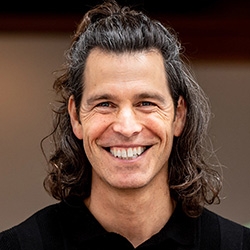

Search Results: compassion
-
Feelings and Needs form the cornerstone of Nonviolent Communication (NVC), offering a profound framework for cultivating empathy, compassion, and authenticity in our interactions. This comprehensive 9-page Feelings and Needs Reference Guide is designed to support you in integrating these vital concepts into your daily life.
-
Feelings and Needs form the cornerstone of Nonviolent Communication (NVC), offering a profound framework for cultivating empathy, compassion, and authenticity in our interactions. This comprehensive 9-page Feelings and Needs Reference Guide is designed to support you in integrating these vital concepts into your daily life.
-
Welcome to June. It’s the beginning of summer in my area of the world and I usually find myself moving at a slower pace; spending more time outdoors and with friends, more time reading and gardening. I really enjoy the beginning of summer especially because the sun brings just enough heat to feel good, but not so hot to be uncomfortable.
-
2020 has added three major global crises to our long and painful list of ongoing challenges:
- Public health crisis emerging from the Coronavirus infecting humans;
- Governance crisis manifesting especially in global protests against police brutality and governments more generally; and
- Economic crisis unfolding from responses to the pandemic.
And as a result, many of us who share NVC with others have been feeling a growing unease about our roles. I have heard from quite a few who want to go beyond using NVC primarily as a personal growth tool within the market economy, and often don't know how to do so. This course is designed to respond to this need by supporting anyone who shares NVC with others – regardless of experience or certification – in opening to the way systemic perspectives deepen and transform how we bring NVC to people, communities, and organizations.
-
- Dive deep into the book, Peaceful Living: Daily Meditations for Living with Love, Healing and Compassion with the author
- Deepen your ability to live NVC on a day-to-day basis
- Experience the combination of Mary’s wisdom, daily meditations, journaling, and community
- Enjoy accompaniment throughout 2025 with like-minded individuals
-
Dear friends,
My book, Peaceful Living: Daily Meditations for Living with Love, Healing and Compassion has been on my mind a lot lately. It turns 20 years old next year, which I feel joyful about. Along the way, I came across this meditation that I wanted to share with you:
November 26
Change your thoughts and you change your world. – Norman Vincent PealeDeveloping Tolerance
I used to think that Chihuahuas were dumb dogs and bulldogs were ugly. Then one of my friends bought a longhaired Chihuahua named Tilly and another bought an English bulldog named Emma. Once I got to know these dogs and could see how truly sweet they are, it didn’t take long for me to fall in love with both of them.
-
By guessing our child's feelings and needs we open the door to understanding what's behind their behavior, and can better suggest solutions that meet both their and our own needs. In this way we build trust and their desire to seek us out in times of need. Expressing our own feelings and needs also allows us to help them understand the value in fulfilling tasks or requests.
-
- Reclaim the lost voices of your ancestors
- Understand the impact of collective trauma on your family line
- Open yourself up to have more warmth for yourself and your children
- Restore the flow of love and energy from past generations
-
Mary Mackenzie explains that empathizing with our closest loved ones can be difficult because they matter so deeply to us, past experiences might create emotional barriers, and we might fear losing ourselves in the process.
-
Dear friend,
There is an article from some years back by Dan Rather called, Why America Needs More Empathy. It touched me deeply when I first read it, and I happened to stumble upon it again recently. It feels so relevant and alive for me right now because he reminded me of what my parents taught me about helping other people.
-
As a beginner in NVC, you might find your attempts to practice your NVC only increases conflict, disconnection and upset in your interactions with people. Or perhaps people start seeing you as inauthentic. From there, you may find yourself sinking deeper into self-judgement. In this article, Jim Manske shows us how to shift these potential unintended outcomes, into deeper NVC consciousness that brings in more warmth, presence and open-hearted connection.
-
Reacting is deciding what to do based on what someone else does. Responding is deciding what to do based on your own needs and values. When someone isn't responding the way you want, and you want to respond in a way that embodies your values, with warmth and patience, examine your reactions. Ask yourself how you can access compassion and action that contributes to the well-being of all.
-
Based on your observations of "power with" interactions choose a specific, do-able to practice so that you're prepared the next time you're in a power under/power over dynamic. Keep the practice simple to do in a difficult moment. Then reflect: identify what you did (internally or externally) or said that (de)escalated the dynamic. This practice requires noticing what went well, self compassion, perseverance, and support.
-
Judging or criticizing others indicates pain, unmet needs and a coping strategy. It distracts you from yourself and can give you the illusion of control. You may think you see more than they do, imagining criticism will bring change. But even a correct analysis won’t inspire change if they hear criticism. Instead, the moment you notice judgments or criticism turn towards yourself with compassion. What are your feelings and needs?
-
Because we affect one another it can be hard to know where to take responsibility and where to leave it with the other person. This means we need self empathy, and presence for another's struggles without compulsion to "make them happy" or bring them healthy change. You can then attend to the needs and to your choice about if and how you want to contribute with compassion. Respect them as autonomously in charge of their unique process of change. With this, you honor your life and theirs. And where, what, and how you will invest your precious life energy.
-
Anger is a sign that you're resisting what's happening because you perceive an overwhelming threat, not trusting yourself to handle what's happening directly. Vulnerable feelings under anger are usually fear, hurt, or grief. Experiencing and expressing these feelings and connecting them to your needs, gives you access to more skill, insight, compassion, and wisdom. Read on for 3 questions to ask yourself when angry.
-
Differentiation means you can access both autonomy and intimacy in relationships. When you're unafraid to lose yourself or be controlled, you can feel deeply connected and affected, while standing strong in yourself. Differentiation also means ability to tolerate disharmony and differences, self-soothe, offer compassion, and set boundaries. Here, we'll focus on setting boundaries with monitoring eye contact and physical interaction, and interrupt our "helping".
-
Making a decision or boundary that invites someone to be honest about their feelings can be difficult. Remember that lack of authenticity may be due to lack of awareness, inner conflict, or fear of conflict, rather than dishonesty. Offer empathy and reassurance and invite more conversation. Approach with compassion and curiosity to naturally invite more honesty.
-
Amidst the Israel/Palestine war we see polarizing media portrayals and the battle for public opinion. Read how one person shares his deep, personal connections to the Israel/Palestine conflict, expresses the trauma and viewpoints of both Palestinian and Israeli experiences -- in a way that aims to transcend polarizations, hold compassion, and understand the complexity on both sides. Despite the immense challenge that defies easy resolution, he holds hope, noting historical reconciliations such as the ones between Germans and Jews.
-
Mary Mackenzie shares how making requests in NVC builds honesty, trust, and deeper connection.

Quick Links
Subscription Preferences
Stay In Touch!
Looking for ways to keep up with NVC Academy news, get special offers, free resources, or words of inspiration? Here are five ways to stay engaged:















